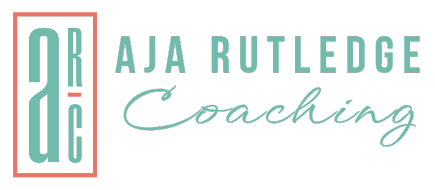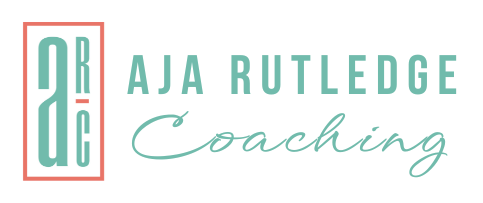
In our journey through life, many of us encounter recurring negative patterns. They seem to follow us no matter how hard we try to escape them. These cycles can stem from past trauma, learned behaviors, or unaddressed emotional wounds. Breaking free from these cycles requires a deep dive into self-awareness and proactive steps toward change. In this post, we will explore practical steps to recognize and alter harmful patterns, share poignant personal stories, and highlight the essential role of self-awareness and support systems in this transformative process.
Understanding Negative Cycles
What Are Negative Cycles?
Negative cycles are repetitive patterns of behavior, thoughts, or emotions that lead to undesirable outcomes. In fact, these cycles often come from past experiences, especially those involving trauma or significant emotional distress. They can show up in various aspects of life, including relationships, work, parenting and personal well-being.
The Impact of Negative Cycles
Living in a negative cycle can have profound effects on mental, emotional, and physical health. It can lead to chronic stress, anxiety, depression, and a sense of helplessness, just to name a few possible outcomes. Therefore, breaking these cycles is crucial for personal growth and overall well-being.
Recognizing Harmful Patterns
Identifying Triggers
The first step in breaking negative cycles is recognizing the triggers that set them off. These triggers can be specific situations, people, or emotions that prompt a negative response. Keeping a journal to track these instances can help in identifying patterns.
Situations
Many situations can feel familiar or bring up old dynamics, internal feelings and interactions that cause one to respond from old wounds. This can be the family dinner on Thanksgiving or the way a discussion with your partner around a certain topic seems to go the same way and create similar responses from you and/or your partner.
People
I once heard of this woman who was very ill and no doctors could figure out what was wrong. When her mother came into the hospital room as yet another doctor was speaking, he noticed the patient’s dynamic change. This patient’s mother was a trigger for her and the doctor figured out that her mother as a trigger was the cause of her illness.
Depending on your history and present with someone, they can be a tigger for you. Pay attention to how you are with them. Do you regress into child-like ways of being or ways you interacted before growth and healing? Does your stomach always clench when they’re around? If you respond in ways that aren’t good for you when around this person (or when their name comes up) this person may be a trigger.
Emotions
First remember, emotions are messengers and they can tell us when we are triggered. Some ways to know if emotionally triggered can be disproportionate emotions to what caused it, defaulting to certain emotions in similar situations (ex: always storming off when someone tells you you can do something), feeling like you are most comfortable or live most of your life in an emotion (anxiousness, sadness, frustration, etc).
Self-Reflection and Self-Awareness
Engage in regular self-reflection to understand your behaviors and reactions. Self-awareness plays a crucial role in identifying why certain situations provoke specific responses and what underlying beliefs or fears might be driving these reactions.
One way I recommend doing this is asking yourself “why/when/how ___?” until you can’t go back any further.
Why did that response make me feel ___?
Why did that feeling feel familiar?
When have I felt like that in my past?
How does that tie to this current situation?
Seeking Feedback for Self-Awareness
Sometimes, others can see patterns we are blind to. Seeking feedback from trusted friends, family, or a coach can provide valuable insights into your behaviors and help identify harmful patterns. This external perspective enhances self-awareness.
Changing Harmful Patterns
Setting Clear Intentions with Self-Awareness
Set clear intentions for the changes you want to make. This involves defining what you want to achieve and why it is important. Having a clear purpose, grounded in self-awareness, can motivate and guide your efforts.
Developing New Habits
Replacing negative behaviors with positive ones is key to breaking cycles. Start small by introducing new, healthier habits into your routine. Start slow, by not overwhelming yourself with trying to implement too much too fast. Consistency is crucial, as it takes time for new habits to take root.
Creating a Routine for Self-Awareness
Establishing a daily routine that incorporates new habits can help ensure consistency and make it easier to stick to changes. This routine should include moments of self-awareness and reflection.
Mindfulness Practices for Enhancing Self-Awareness
Incorporate mindfulness practices such as meditation, deep breathing, or yoga into your daily routine. These practices can help you stay present, reduce stress, and respond to triggers more calmly. Mindfulness greatly enhances self-awareness.
Benefits of Meditation for Self-Awareness
Meditation can enhance self-awareness, improve emotional regulation, and provide a sense of calm and clarity.
A Personal Story of Transformation
I used the “why/how/when” method of questioning in my own life – I still do. So many beliefs guided my life that actually weren’t mine and that I didn’t agree with. I wasn’t aware of this and they were dominating my life.
The first example I can remember is one Saturday I was exhausted; clothes needed to be washed, dishes were in the sink (which I never do) and I had a young child. In fact, as was completely out of the norm for me, I decided to lay on my bed and rest instead of handle the things around the house. As I lay there, thoughts started floating through my mind…”you’re so lazy”, “who lays around when the dishes need to be cleaned”, ” you have stuff to do, you shouldn’t be laying here” and more.
I finally stopped and thought, “I’m tired! Where is this coming from? Who told me this?!” and my brain responded “your mother”. It stopped me in my tracks. It was right. From there I began to question this belief and how valid it was for me at this time in my life. I concluded that it wasn’t valid for me at all and it was time to let it go.
It wasn’t that simple to stop the thoughts but it gave me the origination point so when it came up again, I could respond something like “my mother imparted that but I don’t agree – I deserve rest. It’s important for me to be a good mother” and the more that happened the more the belief shifted.
The Importance of Self-Awareness
Understanding Yourself Through Self-Awareness
Self-awareness involves a deep understanding of your thoughts, emotions, and behaviors. It requires honest self-examination and a willingness to confront uncomfortable truths about yourself.
Emotional Regulation
Being self-aware helps in regulating emotions more effectively. When you understand what triggers your negative emotions, you can take steps to work to respond instead of react.
Empowerment Through Knowledge
Self-awareness empowers you to make informed decisions about your life. It provides clarity and insight, allowing you to take control of your actions and their consequences.
Building Support Systems
Seeking Professional Help to Enhance Self-Awareness
Therapists, coaches, and counselors can offer guidance and support as you work to break negative cycles. They provide a safe space to explore your experiences and develop strategies for change.
Leaning on Loved Ones
Having a strong support network of friends and family can provide encouragement and accountability. Share your journey with those who understand and support your goals.
Joining Support Groups
Support groups can offer a sense of community and shared experiences. Connecting with others who are on a similar journey can provide comfort and inspiration.
The Role of Wellness in Breaking Cycles
Physical Health and Self-Awareness
Maintaining good physical health through regular exercise, a balanced diet, and sleep can have a positive impact on mental and emotional well-being. Physical wellness often impacts self-awareness.
Mental Health and Self-Awareness
Engage in activities that stimulate and relax your mind. Reading, puzzles, and creative hobbies can enhance mental health and provide a healthy distraction from negative thoughts, thereby improving self-awareness.
Spiritual Health and Self-Awareness
For many, spirituality plays a crucial role in healing and personal growth. Whether through religious practices, meditation, or spending time in nature, nurturing your spiritual health can offer peace and perspective, enhancing self-awareness.
For a clear, easy to implement habits to wellness that incorporate physical, mental and spiritual, check out my free Finding Your Calm Guide.
Conclusion
Breaking the cycle of negative patterns is a challenging yet rewarding journey. It requires self-awareness, commitment, and support. By recognizing harmful patterns, setting clear intentions, and developing new habits, you can transform your life and create the future you desire. Remember, you are not alone in this journey. Be sure to lean on your support systems, seek professional help when needed, and never underestimate the power of self-awareness in driving positive change.


